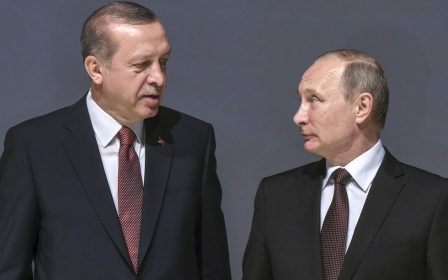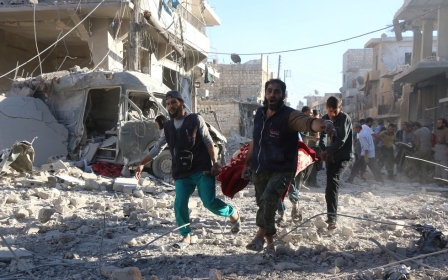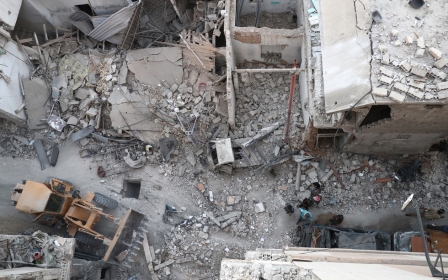UK considering military options in Syria, says foreign minister
The UK is considering military options in the Syrian conflict but any action would need to be part of a coalition involving the United States, Britain's foreign minister said on Thursday.
"It is right, now, that we should be looking again at the more kinetic options, the military options," Boris Johnson told the foreign affairs select committee of MPs. "But we must be realistic about how these in fact work, and what is deliverable," he added.
"We can't do anything without a coalition, without doing it with the Americans. I think we're still a pretty long day's march from getting there, but that doesn't mean that discussions aren't going on, because they certainly are."
A spokeswoman for the British prime minister, Theresa May, took a more cautious approach: "There are no plans for military action," she said. "We are working with the international community to look at how to bring the conflict to an end."
The spokeswoman added that there were a range of options available.
The statements come after weeks of intense bombardment by the Russian and Syrian air forces of the rebel-held areas of eastern Aleppo.
Hundreds of people have been killed in the attacks - including more than 150 since Tuesday, according to civil defence officials in the city.
Britain's parliament rejected calls in 2013 to target the Syrian government, led by Bashar al-Assad, following the deaths of hundreds of civilians in chemical attacks which the UN has since said originated from the government in Damascus.
"We cannot just see Aleppo pulverised in this way, we have to do something. The mood of the House of Commons has changed from 2013," Johnson said.
"Most people I think are changing their minds on this and are thinking we cannot let this go on forever. Whether that means we can get a coalition for a more kinetic action now I cannot prophesy. But what most people want to see now is a new set of options."
He said that intensifying sanctions on key players in the Assad regime was another option open to Britain. But Johnson reaffirmed his belief that Britain should not raise "false hopes" about the idea of a no-fly zone to prevent Russian and Syrian government attacks on Aleppo.
"I must tell you, at this stage it is vital that we do not raise false hopes. We know the difficulties and implications of a no-fly zone or a no-bombing zone," he told the parliamentary committee.
"But if there is more that we can reasonably and practically do, together with our allies, then of course we should consider those measures."
Johnson said the UK had "a very serious problem with Russia” and he accused them of being “reckless and aggressive”.
However, he insisted that the answer was to engage with Moscow and denied that Russia poses the same threat to the West now as did the old Soviet Union.
His comments come after days of acrimonious exchanges between the UK and Russia over the Syrian war. Johnson called the attacks on Aleppo "barbaric" and possible war crimes, and called for protests outside the Russian embassy in London.
Russia hit back, calling Johnson's words "Russophobic hysteria" and describing allegations of war criminality as "a storm in a teacup".
Kremlin spokesman Dmitry Peskov on Thursday said Russia would welcome British military involvement in Syria if it targeted terrorists and not the forces of Assad.
A Russian military spokesman meanwhile said Russia was prepared to allow rebels to leave eastern Aleppo unimpeded, and admit humanitarian aid. Rebels have refused similar offers in recent months, and previous promises on aid have failed to materialise.
This article is available in French on Middle East Eye French edition.
New MEE newsletter: Jerusalem Dispatch
Sign up to get the latest insights and analysis on Israel-Palestine, alongside Turkey Unpacked and other MEE newsletters
Middle East Eye delivers independent and unrivalled coverage and analysis of the Middle East, North Africa and beyond. To learn more about republishing this content and the associated fees, please fill out this form. More about MEE can be found here.




